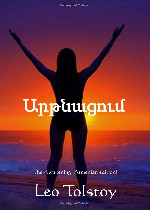
This masterful novel is a religious fable of sorts, written by the gifted Russian author Leo Tolstoy as a means of shedding light on the hypocrisy inherent in many aspects of organized religion in the nineteenth century. The book follows the plight of Russian aristocrat Dmitri Ivanovich Nekhlyudov as he seeks absolution -- both in the church and in his own psyche -- for a sin he committed years earlier.
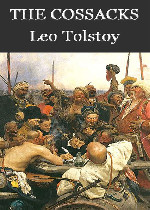
The Cossacks (Russian: Казаки [Kazaki]) is a short novel by Leo Tolstoy, published in 1863 in the popular literary magazine The Russian Messenger. It was originally called Young Manhood. Both Ivan Turgenev and the Nobel prize-winning Russian writer Ivan Bunin gave the work great praise, Turgenev calling it his favorite work by Tolstoy. Tolstoy began work on the story in August 1853. In August 1857, after having reread the Iliad, he vowed to completely rewrite The Cossacks.
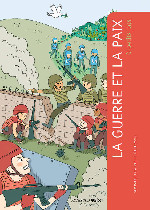
La guerre et la paix(战争与和平) 立即阅读
Guerre et Paix ou La Guerre et la Paix (en russe : Война и мир, Voïna i mir) est un roman de l'écrivain russe Léon Tolstoï. Publié en feuilleton entre 1865 et 1869 dans Le Messager russe, ce livre narre l’histoire de la Russie à l’époque de Napoléon Ier, notamment la campagne de Russie en 1812. Léon Tolstoï y développe une théorie fataliste de l’histoire, où le libre arbitre n’a qu’une importance mineure et où tous les événements n’obéissent qu’à un déterminisme historique inéluctable.
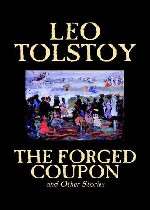
The Forged Coupon and Other Stories(伪造的证券和其他故事) 立即阅读
The Forged Coupon (Russian: Фальшивый купон, Fal'shivyi kupon) is a novella in two parts by Leo Tolstoy. Though he first conceived of the story in the late 1890s, he did not begin writing it until 1902. After struggling for several years, he finally completed the story in 1904; however, it was not published until some of Tolstoy's shorter works were collected and anthologized after his death in 1910.
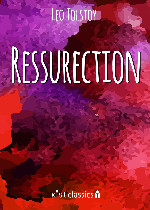
Resurrection (Russian: Воскресение, Voskreseniye), first published in 1899, was the last novel written by Leo Tolstoy. The book is the last of his major long fiction works published in his lifetime. Tolstoy intended the novel as an exposition of the injustice of man-made laws and the hypocrisy of the institutionalized church. The novel also explores the economic philosophy of Georgism, of which Tolstoy had become a very strong advocate towards the end of his life, and explains the theory in detail.
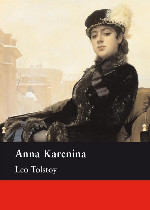
Anna Karenina (Анна Каренина) ist ein Roman von Leo Tolstoi, der in den Jahren 1873 bis 1878 in der Epoche des russischen Realismus entstand und als eines von Tolstois besten Werken gilt. Das Buch wurde 1877/78 veröffentlicht und handelt von Ehe und Moral in der adligen russischen Gesellschaft des 19. Jahrhunderts.
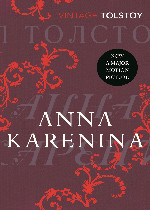
Anna Karenina (Анна Каренина) is a novel by the Russian writer Leo Tolstoy, published in serial installments from 1873 to 1877 in the periodical The Russian Messenger. Tolstoy clashed with editor Mikhail Katkov over political issues that arose in the final installment; therefore, the novel's first complete appearance was in book form in 1878. Widely regarded as a pinnacle in realist fiction, Tolstoy considered Anna Karenina his first true novel, after he came to consider War and Peace to be more than a novel.
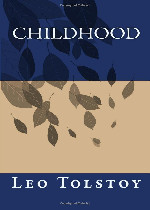
Childhood is the first published novel by Leo Tolstoy, released under the initials L. N. in the November 1852 issue of the popular Russian literary journal The Contemporary. It is the first in a series of three novels and is followed by Boyhood and Youth. Published when Tolstoy was just twenty-three years old, the book was an immediate success, earning notice from other Russian novelists including Ivan Turgenev, who heralded the young Tolstoy as a major up-and-coming figure in Russian literature.
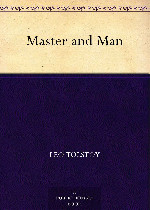
In this short story, a land owner named Vasili Andreevich Brekhunov takes along one of his peasants, Nikita, for a short journey to the house of the owner of a forest. He is impatient and wishes to get to the town more quickly 'for business' (purchasing the forest before other contenders can get there). They find themselves in the middle of a blizzard, but the master in his avarice wishes to press on. They eventually get lost off the road and they try to camp. The master's peasant soon finds himself about to die from hypothermia.